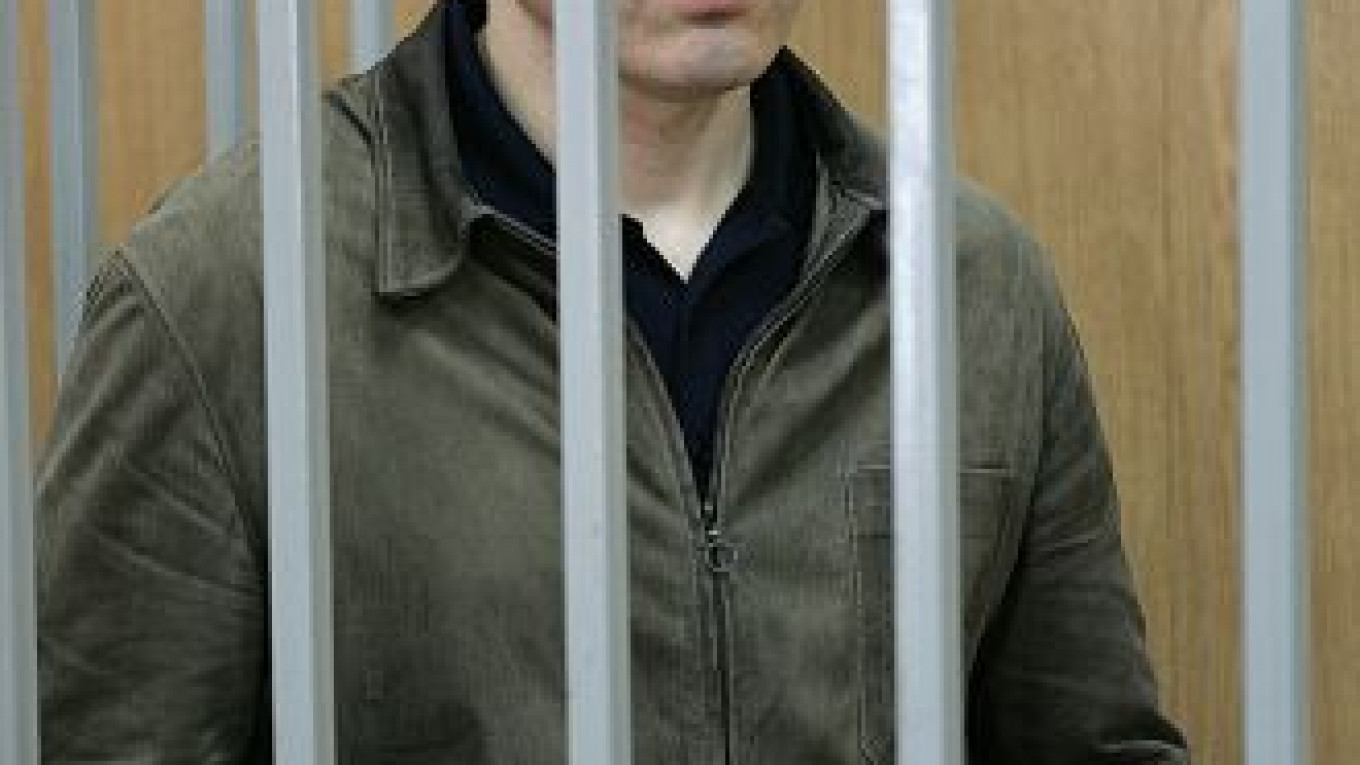Former Yukos CEO Mikhail Khodorkovsky and his business partner Platon Lebedev were illegally held in detention for six months during their trial last year, the Supreme Court ruled Tuesday.
Khodorkovsky and Lebedev were serving previous prison sentences at the time, and the court ruled that they should have been kept in jail, not pretrial detention. Conditions for suspects are notoriously worse than for inmates and, rights activists say, are sometimes used by authorities to pressure arrestees.
The ruling will have no direct impact on the businessmen's fate but is a rare token victory for the duo, embroiled in a complicated appeal process over purported violations at their two trials.
The Moscow City Court issued two separate decisions last year to keep Lebedev and Khodorkovsky in the Matrosskaya Tishina detention facility from mid-May to mid-August and from mid-August to mid-November.
But the decisions were a "gross violation" of then-new legislation by President Dmitry Medvedev that softened punishments for economic crimes, the Supreme Court ruled Tuesday, the defendants' legal team said in a statement.
In April, the Supreme Court struck down a lower court's decision to extend their arrest from August through November. The new ruling pertains to the first part of the arrest.
The Moscow City Court must now draw up a report on the violations, and the report might result in reprimands for the judges who made the rulings, the statement said. It gave no time frame.
Lebedev's lawyer Konstantin Rivkin welcomed the decision but cautioned against placing too much value in it. "We would like to see a new twist in the case, but practice shows that the court system is vicious and anti-constitutional," Rivkin said, Interfax said.
Khodorkovsky and Lebedev, in detention since 2003 and in jail since 2005 on fraud and tax evasion charges, had their sentence extended to 2016 following a related trial for embezzling oil. Their supporters say both cases are politically motivated.
Khodorkovsky's lawyers have unsuccessfully petitioned for his early release for months, a prospect that became less likely after he was reprimanded by prison officials in August for "illegally sharing" cigarettes and "being in an off-limits zone without authorization." Reprimands, however petty, are a legal pretext to deny parole.
In July, an Arkhangelsk court rejected a parole plea by Lebedev, saying he was not eligible because of breaches of prison rules, including the loss of a robe, slippers and a pair of trousers.
Novaya Gazeta editor-in-chief Dmitry Muratov on Monday presented British Prime Minister David Cameron, on a visit to Moscow, with a prison robe similar to the one that cost Lebedev his parole.
Cameron had been urged to take up rights issues during his meetings with Medvedev and Prime Minister Vladimir Putin, but avoided confrontation during his visit, which focused on business deals.
The European Court of Human Rights is expected to rule next Tuesday on a $98 billion case by Yukos against the Russian government, Yukos representatives said in an e-mailed statement. The company accuses the government of illegally seizing 19 billion euros ($26 billion) in taxes and fines and forcing the company to sell its stake in the Yuganskneftegaz oil producer.
A Message from The Moscow Times:
Dear readers,
We are facing unprecedented challenges. Russia's Prosecutor General's Office has designated The Moscow Times as an "undesirable" organization, criminalizing our work and putting our staff at risk of prosecution. This follows our earlier unjust labeling as a "foreign agent."
These actions are direct attempts to silence independent journalism in Russia. The authorities claim our work "discredits the decisions of the Russian leadership." We see things differently: we strive to provide accurate, unbiased reporting on Russia.
We, the journalists of The Moscow Times, refuse to be silenced. But to continue our work, we need your help.
Your support, no matter how small, makes a world of difference. If you can, please support us monthly starting from just $2. It's quick to set up, and every contribution makes a significant impact.
By supporting The Moscow Times, you're defending open, independent journalism in the face of repression. Thank you for standing with us.
Remind me later.






